Job seekers face a new workplace in 2021 that reflects the harshness of the prior year.
A public health crisis, limping economy, divisive election, and heavy unemployment have all made the job market unpredictable. Throw into the mix the lack of in-person interviews and continued work-from-home arrangements, and it’s clear candidates will deal with new disruptions perhaps not seen since internet job postings replaced help-wanted ads in the newspaper.
To guide you through the recruitment data ZoomInfo has collected, check out the following questions that job seekers can contemplate as they ponder a new position or career change.
Want to work from home or have greater flexibility?
Companies that made significant investments in WFH technology will not drop the tools once COVID-19 vaccinations are widespread. Rather, these investments are long-term plays that job candidates should consider.
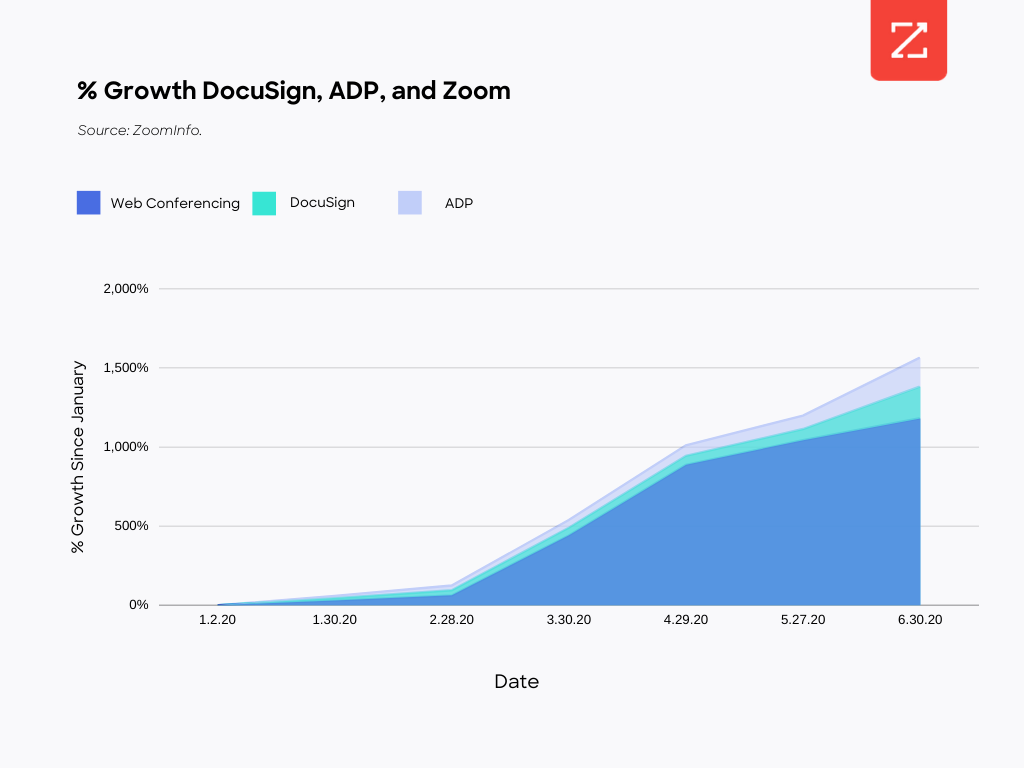
Employees will expect greater flexibility in schedules even after the pandemic ends to deal with child care, meet outside commitments, and decrease commute times. There is also evidence that suggests some workers are more productive at home.
Further, WFH tech is making it easier for companies to hire people that may live elsewhere in the country. This approach opens the talent pool for organizations while letting employees have better control over housing costs (take a peek at house prices in Dubuque, Iowa, compared to San Francisco, for example).
Be warned, however, that some companies are starting to adjust salaries based on the cost of living in areas in which remote employees reside. Relocating to a less expensive community to WFH may result in a pay cut.
Want to work for a startup?
Clearly, investors continued to respond to the innovation displayed by startups despite the difficulties of 2020.
Among all industries, nonprofits have proven deft at securing money, particularly in the startup world. Looking at 2019–2020 numbers, more than one-third of nonprofits that received investments got those boosts from series A and B funding. Also, angel and seed funding accounted for nearly 18% of nonprofit investment.
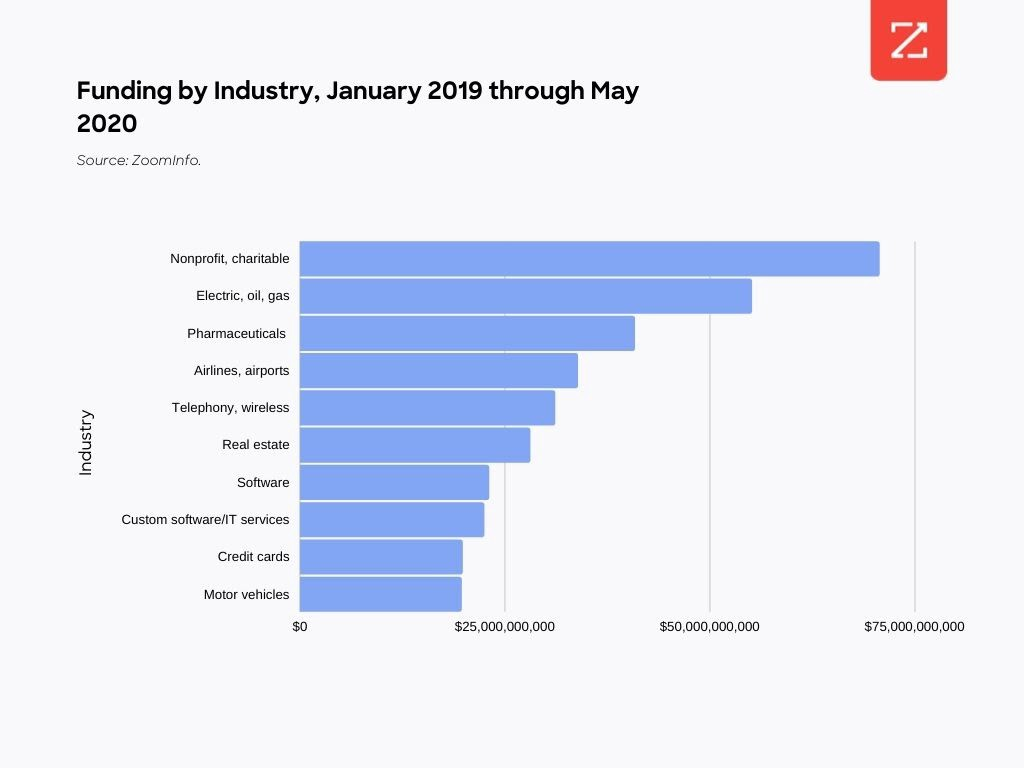
Further sweetening the deal, impact investing — in other words, funds aimed at a social cause — will benefit nonprofits in 2021 given the economic, environmental, and racial upheavals in the U.S.
Other industries with strong funding in 2020 included the pharmaceutical and energy fields.
Want to work for an innovative company?
If you like the feeling when a company moves quickly and releases plenty of new products, smaller-sized and enterprise-level companies are a good bet. These businesses outstripped mid-market firms when it comes to product launches over the past three years.
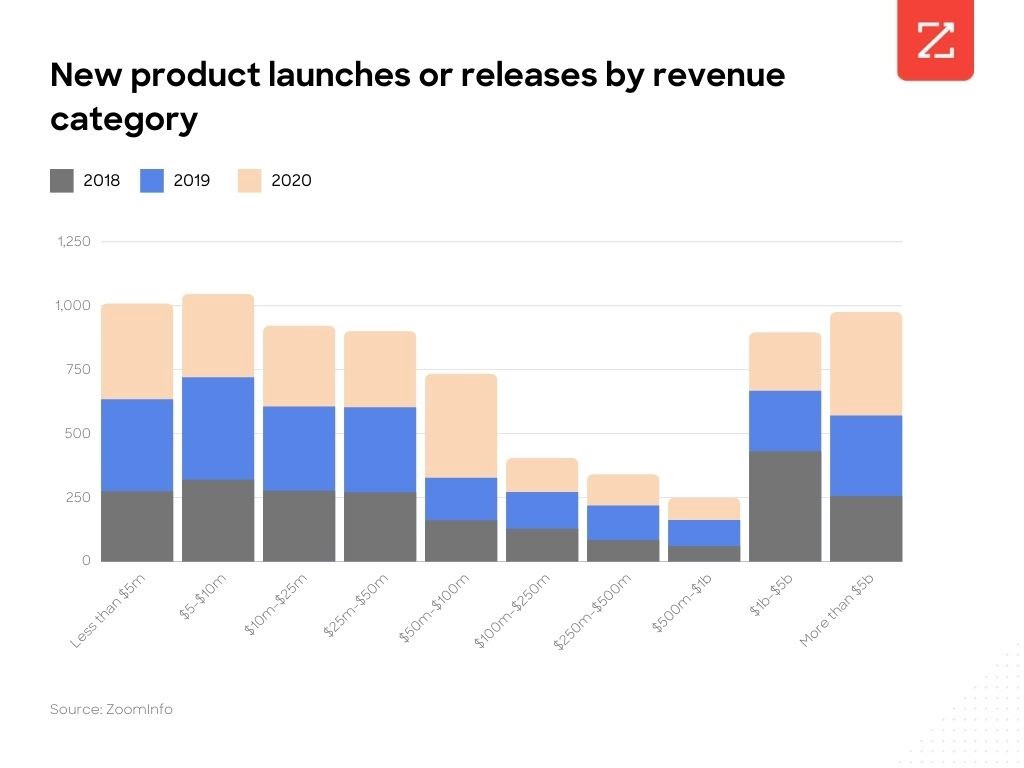
Medium-sized businesses — those that earn from $100 million to $1 billion annually — likely face greater pressure than other companies to control costs as they pursue future revenue goals. Thus, they may spend less on product innovation and instead focus on cross-sell and upsell efforts.
Beyond size, certain industries are more likely to champion innovation and product releases, including manufacturing, software, and business services, according to ZoomInfo data.
Want to work for a diverse company?
Women looking to make moves to management might want to consider certain types of organizations that have been more successful at closing the gender gap with promotions, including:
Government agencies
Hospitals
Nonprofits and associations
Schools and colleges
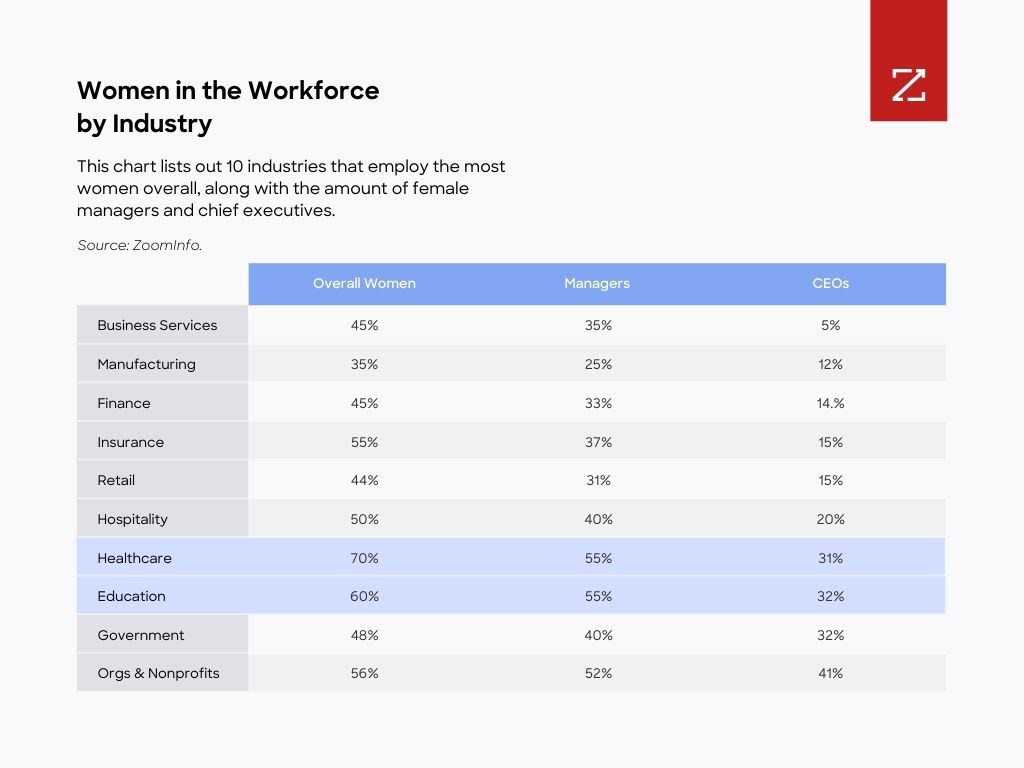
However, the fields listed above have also disproportionately borne the brunt of COVID-19, with women on the front lines, so female job seekers should be cautious.
Meanwhile, many companies have committed to hiring more people of color, a trend that has been heightened by racial unrest seen in the U.S. For example, the New York Jobs CEO Council — a group of chief executives with firms that have a large presence in the Big Apple — wants to hire 100,000 people from low-income minority communities by 2030.
Additionally, diversity-themed executive roles have been on the rise in companies since at least 2000, but made a noticeable jump in 2016, ZoomInfo data shows.
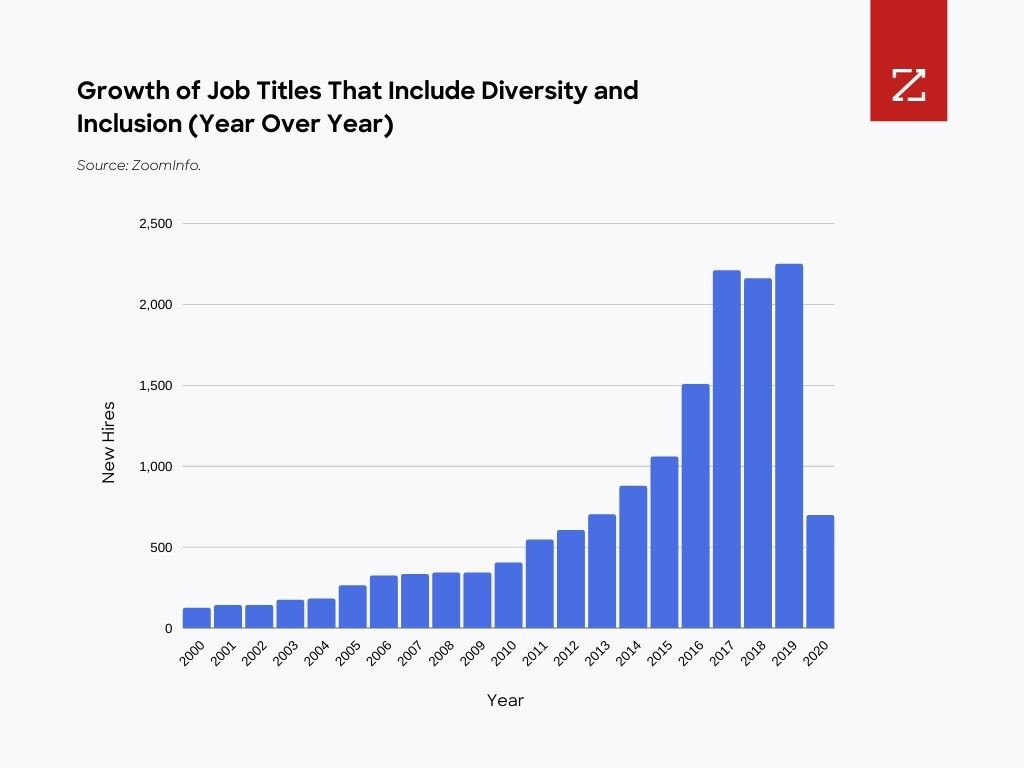
Want to do freelance or independent contract work?
Depending on the service, gig jobs either took a hit or boomed during the pandemic. Two good examples: Shared car rides nosedived because passengers feared COVID-19 infections, but grocery deliveries to homes became en vogue.
As the economy recovers, gig opportunities may increase. Still, they will be offset by a glut of workers seeking these jobs and regulations that may create challenges for employers of independent contractors.
Want to get out of a field that COVID-19 decimated?
Certain jobs — such as those at restaurants, hotels, movie theaters, and live entertainment — have been hamstrung by state restrictions stemming from the pandemic. Millions of workers were either furloughed or laid off.
Take Airbnb, for example, which is expected to go public in December. Faced with declining bookings due to the pandemic, the company cut 25% of its workforce in May and also decreased its sales and marketing spend by more than 50% from January to September.
Those of you in this situation may want to parlay your skills to another field that offers better long-term promise in the “new normal” that will come when the pandemic subsides.
One area to consider: customer success and customer experience. These and other customer-themed duties are growing increasingly important in corporate America as buyers demand smoother interactions.
Many of the aforementioned jobs that COVID-19 gnawed at could transfer to customer experience positions, with a focus on skills that let workers clearly explain value to buyers and empathize with their business challenges.
Conclusion: Assess future companies while on a job hunt in 2021
As job candidates determine their next moves, they can learn from common themes:
Flexibility will be a rallying cry for new employees as they search for opportunities.
People looking for innovative companies need to pay attention to industry and company size, as investments remain focused in certain pockets.
While gender and minority gaps continue to exist in employment, many companies are making improvements.
Skills that worked in jobs affected by COVID-19 may transfer well elsewhere.
As you either prepare to switch positions or even re-enter the workforce, think about the questions in this article and research your potential new employers based on the data. Evaluate your employment decisions carefully during this time of uncertainty, as that extra effort may just pay off.
